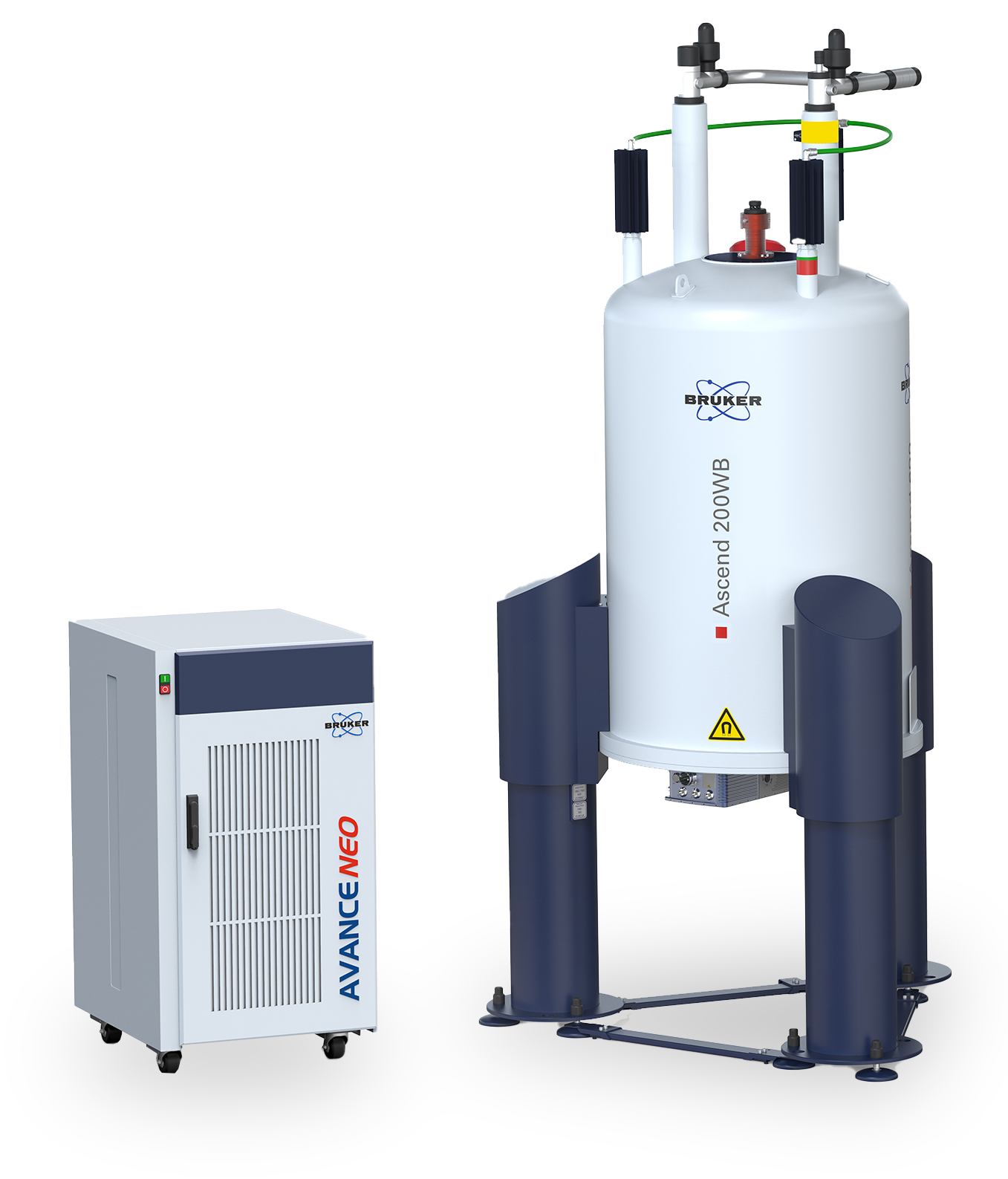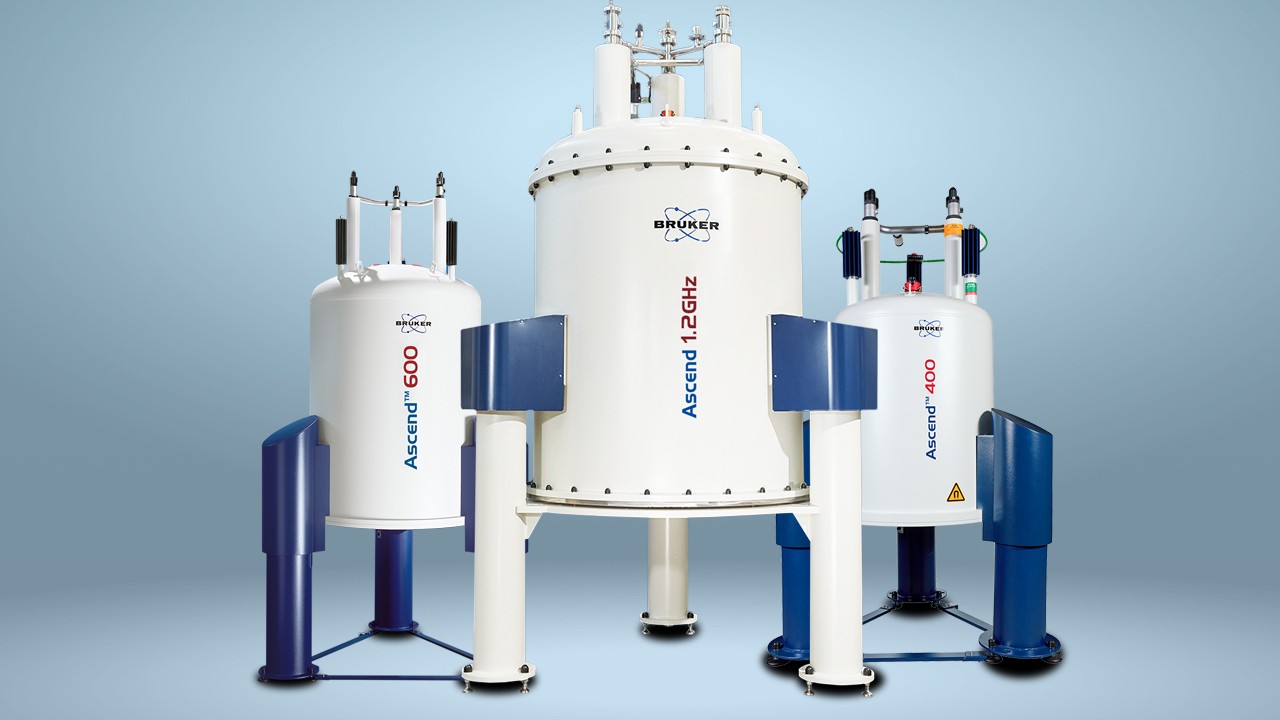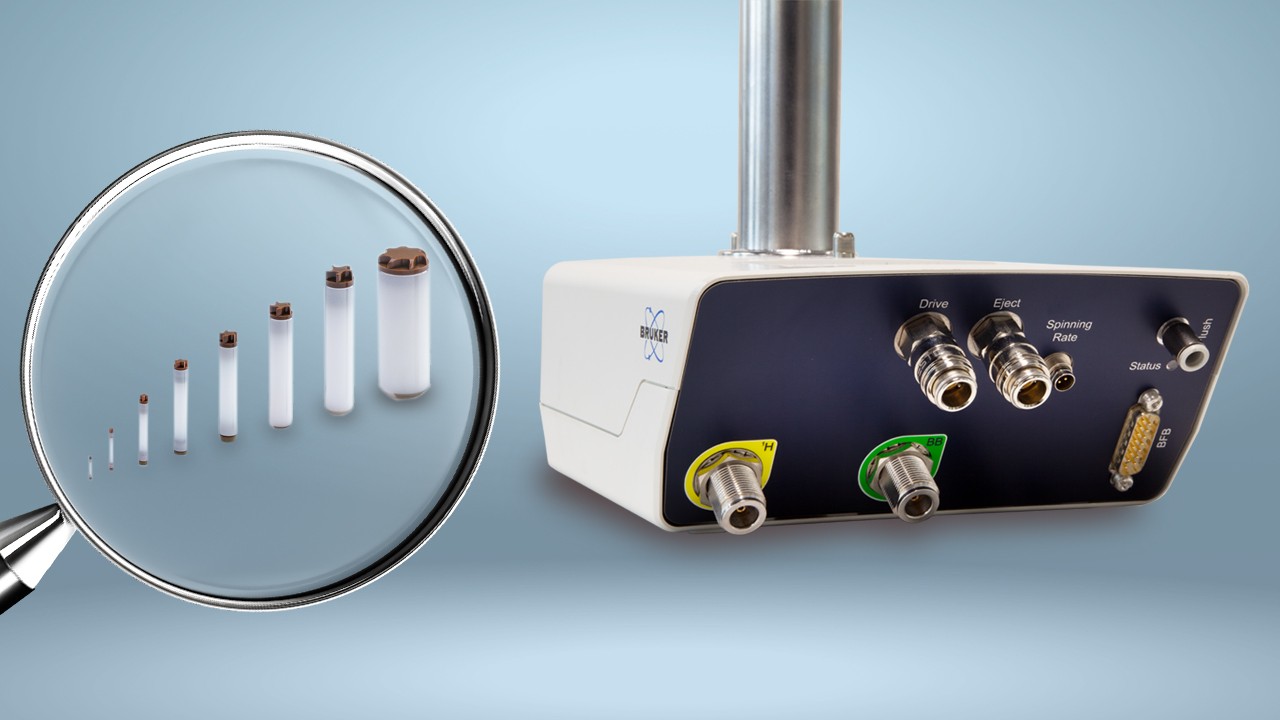Avance NEO 200 MHz 宽腔核磁共振系统


用于复杂材料的精密固体核磁共振(ssNMR)
Avance NEO 200 MHz Wide-Bore (WB) 系统是布鲁克为顺磁性材料的固体核磁共振提供的专用解决方案。通过将 4.7 T 磁体与旋转速率高达 67 kHz 的 1.3 mm CPMAS 探头相结合,该系统为顺磁固体提供了最佳的波谱分辨率,使研究人员能够在各向同性条件下研究高场谱仪上可能被掩盖的结构和动力学性质,并研究在较高场强下通常会被掩盖的结构和动态特征。
该系统专为从事复杂固体研究的学术界和工业界研究人员设计,具有广泛的应用灵活性,包括结构表征、离子动力学和原位电化学反应相关研究等。
申请DEMO
探索先进的磁共振技术
体验 200 MHz 宽腔系统的功能:无论您是在探索新材料,还是在改进研究方法,我们的现场DEMO都能为您提供评估系统性能和收集初步研究数据的实践机会。
布鲁克专家将指导您完成从样品制备到数据解读的每一个步骤,确保您获得适合自己科研目标的实用见解;我们也欢迎您携带自己的样品进行测试。
如果无法亲自前往德国Ettlingen的用户体验中心,我们还提供远程DEMO和样品提交选项。
系统架构与技术亮点
性能卓越,设计灵活
Avance NEO 200 MHz WB 系统专为满足现代固体核磁研究的需求而设计。其模块化设计和升级选项使其非常适合顺磁材料及其他材料研究。
系统包括
- 磁体:Ascend™ 200 MHz 宽腔(4.7 T)
- 机柜:Avance NEO electronics
- 标准探头:1.3 mm H-F/X(31P–15N)CPMAS 探头,转速可达到 67 kHz
- 可选配探头:
- 用于低灵敏度原子核的 4 mm H-F/X CPMAS
- 电池原位 NMR 探头
- 微成像配件
200 MHz Ascend 磁体和 Avance NEO 机柜
| 最小天花板高度 | 2.92 米 |
| 总重量 | 578 kg |
| 5 高斯杂散场 | < 0.55 radial, < 1.1 m axial |
| 氦气蒸发量 | ~19 ml/hr |
| 氦气维持时间 | > 240 天 |
| 外部干扰抑制(ED) | ~ 99 % |
研究应用
多维材料研究平台
200 MHz WB 系统支持广泛的固体核磁应用,特别是在顺磁性物质的谱图解读变得复杂的时候。其低场强和快速 MAS 功能使其成为解析精细结构和动力学信息的强大工具。
顺磁材料表征
解决顺磁性材料引起的NMR信号展宽及其化学位移偏移等问题。200 MHz 的磁场可减少超精细相互作用,从而实现对原子分布、局部环境和相变的详细分析。
固态电解质的动力学研究
进行弛豫测量和扩散测量,研究离子迁移率、活化能和跳跃率,这对了解电导率及其相关电化学性能至关重要。
原位(operando/in-situ)核磁共振
与 ePROBE 的原位探头兼容,该系统支持对电池中的电化学过程进行实时监测,以了解氧化还原机制和降解途径。
微成像
可选的微成像附件可实现空间分辨分析,最大程度地减少易感性伪影,是先进材料研究的理想之选。
更多信息
我们即将为您带来更多相关应用文档,请密切关注布鲁克官网及微信公众号的更新!



